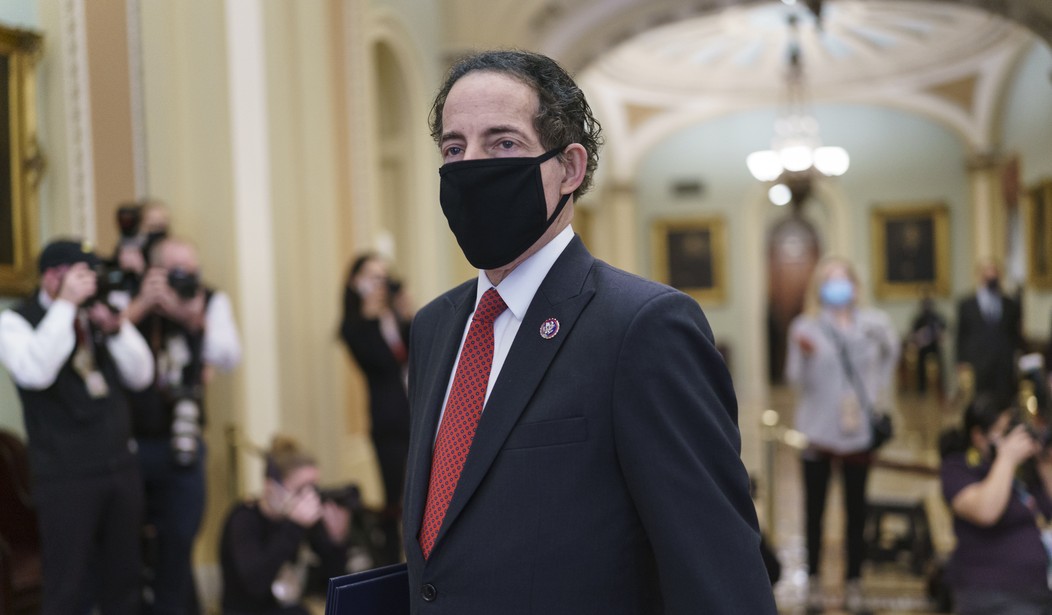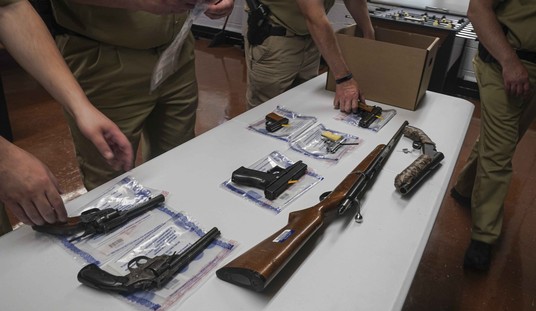Anti-gun lefties are swooning over Maryland congressman Jamie Raskin’s performance during Wednesday’s markup of a bill to ban so-called assault weapons after he declared that Republicans, including fellow Judiciary Committee member Rep. Chip Roy, have adopted an “insurrectionist” interpretation of the right to keep and bear arms.
Raskin is pretty good at this pic.twitter.com/UDs1aGGkyk
— Acyn (@Acyn) July 20, 2022
Salon writer Abigail Goldberg-Zelizer seemed downright giddy in reporting that Baskin had put Roy in his place, and used the plain text of the Constitution to do so.
“My friend from Texas, Mr. Roy, advances the so-called insurrectionist view of the second amendment, that the second amendment’s purpose is to give the people the right to overthrow or fight our government or fight the police or threaten armed resistance if the government is somehow being unfair or unjust,” Raskin said. “This reading is totally and absolutely absurd and flies in the face of the place text of the constitution.”
… Raskin went on to read two sections of the Constitution, Article IV Section 4, and Article III Section 3, which classify armed resistance against the government as “domestic violence” and “treason.”
He then invalidated the “insurrectionist view” of the Second Amendment, which Roy argued stems from a speech by Founding Father Patrick Henry in 1778, in which Henry argued for individuals to have the right to bear arms to defend “public liberty.”
“That’s not constitutional law, that’s a constitutional joke,” Raskin rebutted.
Raskin went on to say that Henry was an anti-Federalist opposed to the ratification of the Constitution, so his opinion doesn’t really matter anyway.
The Maryland Democrat is absolutely correct when he says that there is no right to insurrection in the Constitution. It would be absurd if there was, honestly. But that doesn’t mean that the Second Amendment wasn’t designed, at least in part, to serve as a check on a tyrannical federal government that usurped its legitimate power and authority. Baskin completely ignores what future president James Madison, who was not only a supporter of the Constitution but one of those who ardently lobbied in favor of its ratification, had to say about the value of an armed citizenry in Federalist 46.
The purpose of that particular writing, which was published during the debates over ratification (and years before the right to keep and bear arms was ratified as part of the Bill of Rights), was to assure anti-Federalists like Henry that the Constitution provided plenty of checks on the establishment of an overarching and all-powerful federal government that would run roughshod over the states. Madison listed off a number of reasons why anti-Federalists shouldn’t get their breeches in a twist over the new framework of government, and concluded by arguing that if all else failed to check an incipient federal tyranny, an armed citizenry working in conjunction with state authorities would serve as the “break glass in case of emergency” option of last resort.
Extravagant as the supposition is, let it however be made. Let a regular army, fully equal to the resources of the country, be formed; and let it be entirely at the devotion of the federal government; still it would not be going too far to say, that the State governments, with the people on their side, would be able to repel the danger.
The highest number to which, according to the best computation, a standing army can be carried in any country, does not exceed one hundredth part of the whole number of souls; or one twenty-fifth part of the number able to bear arms. This proportion would not yield, in the United States, an army of more than twenty-five or thirty thousand men.
To these would be opposed a militia amounting to near half a million of citizens with arms in their hands, officered by men chosen from among themselves, fighting for their common liberties, and united and conducted by governments possessing their affections and confidence. It may well be doubted, whether a militia thus circumstanced could ever be conquered by such a proportion of regular troops. Those who are best acquainted with the last successful resistance of this country against the British arms, will be most inclined to deny the possibility of it.
Besides the advantage of being armed, which the Americans possess over the people of almost every other nation, the existence of subordinate governments, to which the people are attached, and by which the militia officers are appointed, forms a barrier against the enterprises of ambition, more insurmountable than any which a simple government of any form can admit of. Notwithstanding the military establishments in the several kingdoms of Europe, which are carried as far as the public resources will bear, the governments are afraid to trust the people with arms. And it is not certain, that with this aid alone they would not be able to shake off their yokes. But were the people to possess the additional advantages of local governments chosen by themselves, who could collect the national will and direct the national force, and of officers appointed out of the militia, by these governments, and attached both to them and to the militia, it may be affirmed with the greatest assurance, that the throne of every tyranny in Europe would be speedily overturned in spite of the legions which surround it.
It’s clear from that passage that Madison saw the right to keep and bear arms on the part of the American people as a check on any potential tyrant who would subvert or ignore the Constitution for their own purposes. Not the only check, mind you. Madison didn’t endorse the idea of paramilitary groups deciding for themselves that the existing government must be overthrown to “restore” the Constitution. Instead, in his view the “militia”, which consisted of the body of men capable of bearing arms, working in conjunction with their state and local governments, serves as a “barrier against the enterprises of ambition” that any would-be tyrant might have.
I agree with Raskin that the Second Amendment is not a license for armed revolt, insurrection, or revolution. What he leaves out of his argument, however, is that the individual right to keep and bear arms is both a tool to prevent a tyrannical government from being established in the first place as well as serving as the last-ditch instrument of collective self-defense on the part of states that would resist a tyrannical government if, in fact, one was ever established in this country.
Raskin concluded his exercise in historical revisionism by proclaiming “we’re not telling them to repeal the Second Amendment, we’re telling them to read the Second Amendment.” Well, I’d encourage him to read Federalist 46, since he apparently has no clue about what the Founders really thought about the right to keep and bear arms and its importance to the security of a free state.









Join the conversation as a VIP Member